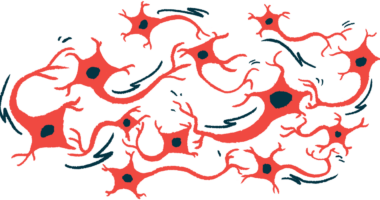SMA Patients, Caregivers Surveyed About Switching to Evrysdi
Survey explored children's, caregivers' expectations, concerns in making change

Children with spinal muscular atrophy (SMA) switching from Spinraza (nusinersen) to Evrysdi (risdiplam) are generally optimistic about the switch as are their caregivers, according to a new study.
The report, “How children and caregivers viewed the change from nusinersen to risdiplam for treating spinal muscular atrophy,” was published in Acta Paediatrica.
Spinraza was the first therapy for SMA to be widely approved. It works by boosting production of the SMN protein whose deficit causes the disease and is administered via injection into the spinal cord every four months.
Clinical trials have shown it can slow SMA’s progression, but it has a limited ability to reverse damage that’s already occurred.
Scientists at the Center for Pediatric Palliative Care in Padua, Italy, observed that high expectations about Spinraza when it was first approved have been difficult to manage and have led “to disappointment, frustration and discontinued treatment” for patients and their families.
Evrysdi is a more recent treatment and became available in Italy this year. Whereas Spinraza is injected into the spine, Evrysdi is a once-daily oral therapy. The two medications have very similar mechanisms of action, and like Spinraza, Evrysdi has been shown to slow SMA progression.
In this study, the researchers reported results from surveys of nine children with SMA who switched from Spinraza to Evrysdi. The patients ranged in age from 9 to 16, two-thirds were girls, and most had either type 2 or type 3. Six were on noninvasive ventilation and three used a feeding tube.
Most children (six of nine) were deemed clinical nonresponders to Spinraza and most had health conditions that complicated administering it (e.g., scoliosis).
Five were satisfied with their improved skills or performance with Spinraza, including improved motor functions. Two were satisfied with achieving general well-being, and maintaining functions and strength.
Most (seven of nine) expected switching to Evrysdi would improve their clinical condition and life quality. Six children expressed minimal concern about the switch, though others said they were anxious about changing their routine, having fewer hospital visits, and the possibility that it would not be effective.
“Attitudes towards changing therapy were predominantly positive,” the researchers wrote.
Surveys also were given to the children’s caregivers and to caregivers of six other children with SMA who were not included in this study. While most of the children said Spinraza treatment was not stressful, most caregivers reported feeling stress about administering it.
All but two caregivers said they expected switching to Evrysdi would improve their child’s quality of life. While most expressed little concern about the switch, some said they were worried about its effectiveness and less frequent hospital visits.
“Patients and parents were most concerned about not seeing any improvements, changes to their routines and decreased hospital visits,” the researchers wrote, noting that clinicians should provide “additional home monitoring and [support] families during the transition” to Evrysdi.
Both patients and caregivers said it was important for treatment to help maintain breathing, swallowing, and the ability to speak. An emphasis for the children was about how treatment could help them be more autonomous in their daily lives.
The researchers noted most caregivers expressed a desire for their child to be able to walk, even if they knew this was not possible.
“It was notable that the children did not mention this expectation. They mainly wanted increased autonomy and functional abilities,” the scientists wrote. “Our findings underline how minimum improvements in autonomy are considered great results by patients. The centre’s intervention plan should always focus on the active total care of the child’s body, mind and spirit and involve the family.”
Spinraza is sold by Biogen, and Evrysdi is sold by Roche through its subsidiary Genentech. Neither company was involved in this study.








